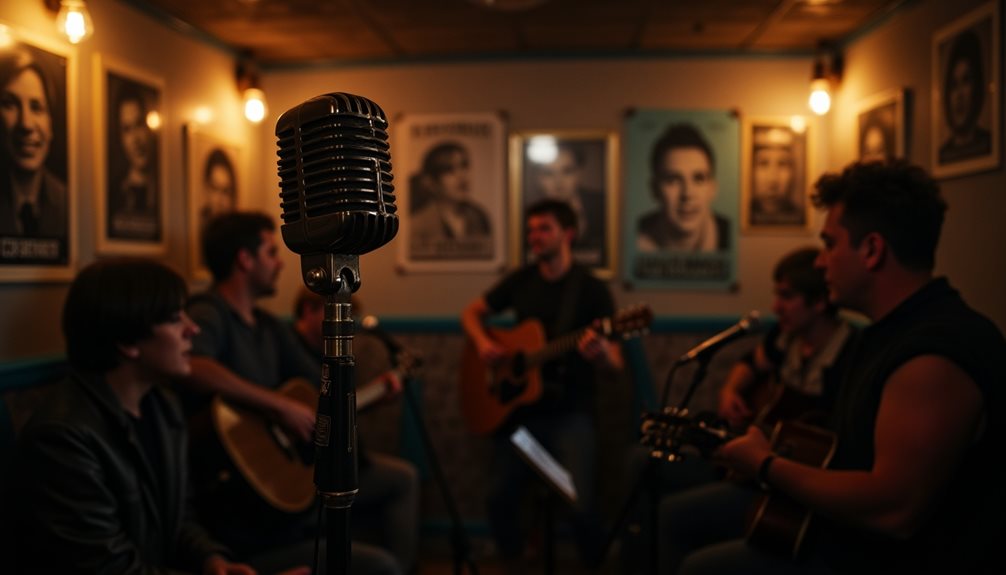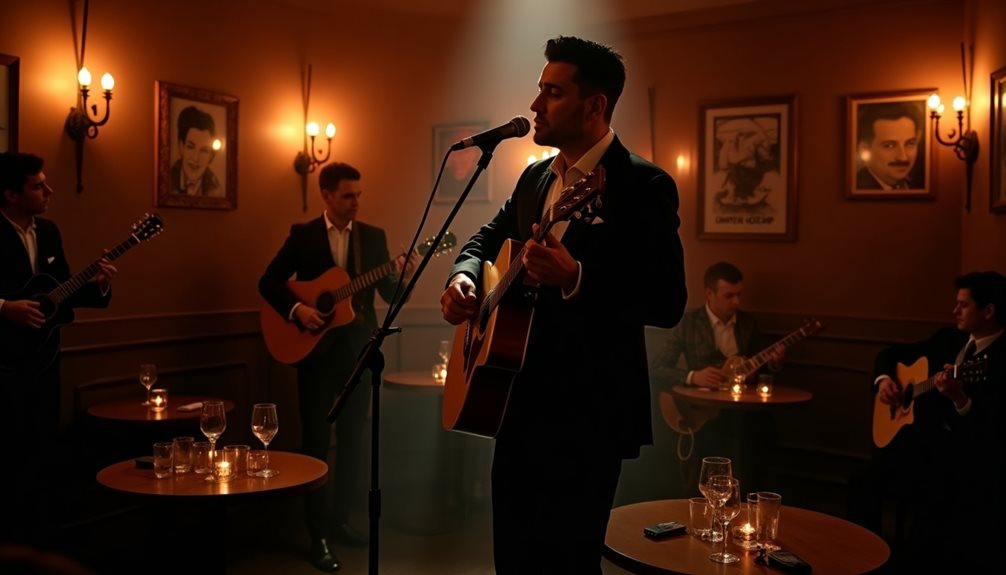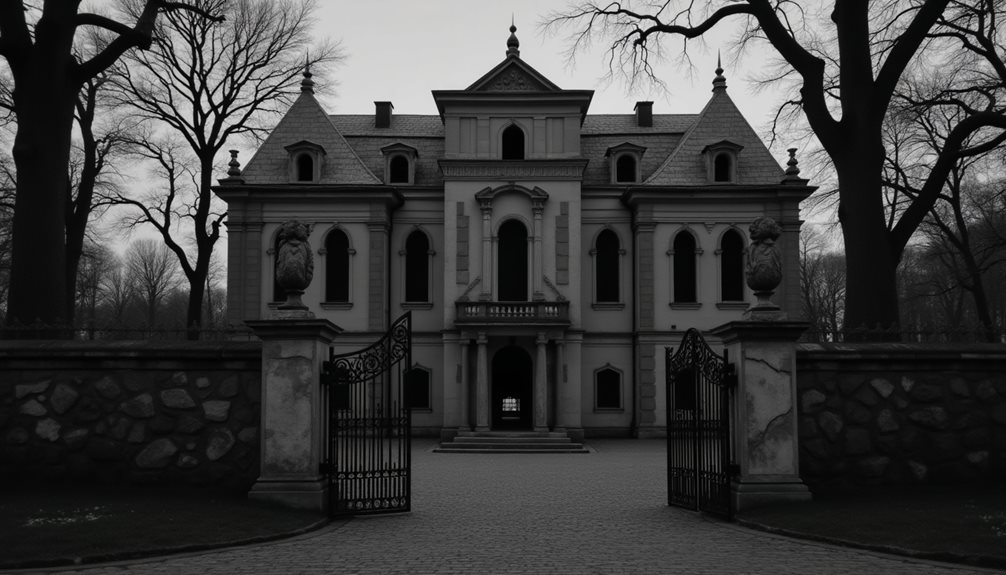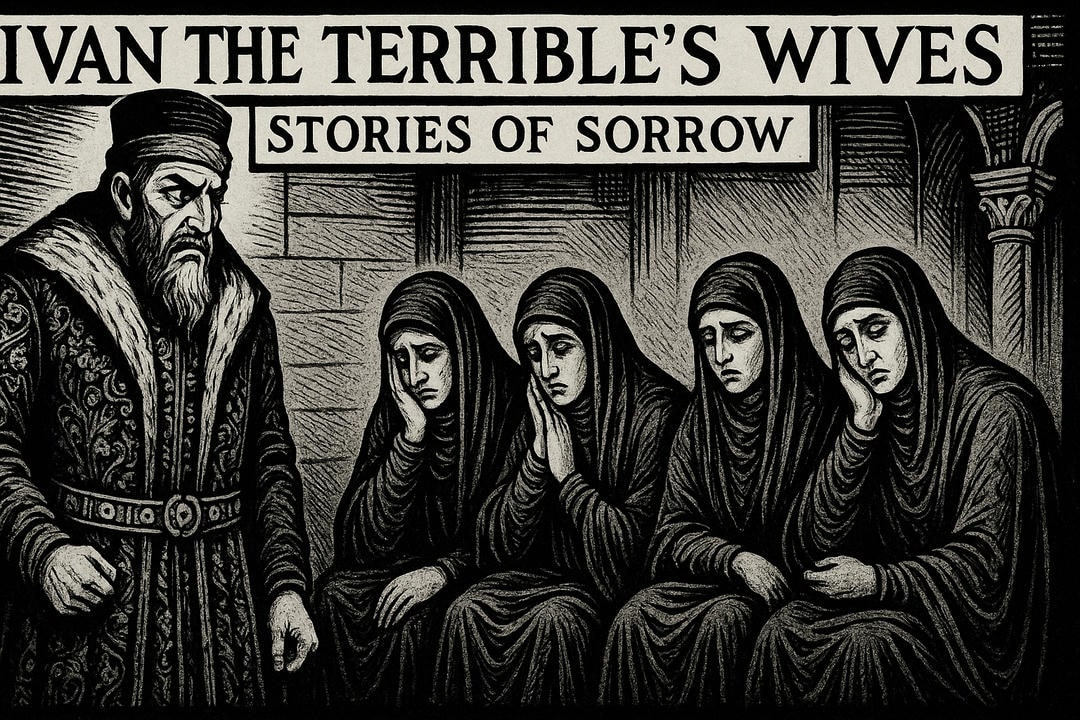Russian chanson stands as a compelling tribute to the nation’s complex cultural fabric. Rooted in the narratives of the marginalized, it reflects the resilience and struggles of everyday life. This genre encapsulates a rich history, showcasing the interplay between oppression and artistic expression. As it continues to evolve, the influence of iconic artists and contemporary trends prompts reflection on its enduring significance. What stories lie beneath its melodies, waiting to be uncovered?
Introduction

Russian Chanson is a complex and multifaceted genre that elicits a wide range of reactions among Russians. On one hand, it is admired for its rich narrative-driven lyrics and deep cultural roots, often associated with urban folklore and the experiences of the underclass. Many fans see it as a noble vocal style that reflects the country’s history and resilience, particularly in its themes of love, betrayal, and survival in the face of adversity.
On the other hand, some view Chanson as a genre that glorifies criminal culture, with its focus on themes like prison life and the underworld. Critics argue that it promotes a primitive and sometimes vulgar content, which has led to public denouncements by officials. Despite this controversy, Chanson remains popular, with many artists achieving significant recognition and even political influence, such as Alexander Rosenbaum, who was a member of the Duma.
The genre’s cultural significance is further underscored by its presence in media, including dedicated radio stations like Radio Chanson, which broadcasts Chanson music continuously and hosts annual awards ceremonies at prominent venues like the State Kremlin Palace. This dichotomy reflects the broader societal debates about the role of art in reflecting and shaping cultural values.
Origins and Evolution
Russian chanson is a vibrant musical genre deeply embedded in Russia’s cultural fabric. It captures life’s complexities through poignant lyrics and emotive melodies, intertwining folk and urban influences to create a powerful form of social commentary. Emerging from 19th-century Russia’s tumultuous landscapes, chanson’s origins blend urban folk traditions and the experiences of marginalized communities. Influences like gypsy melodies and revolutionary ballads have contributed to its rich fabric. Collaborations with poets and musicians further enhanced its depth, creating an evocative narrative that celebrates both sorrow and hope.
Cultural Impact
The cultural impact of chanson resonates through generations, establishing it as a powerful medium that transcends mere entertainment. It serves as a voice for the voiceless in society, bridging gaps between social classes and fostering unity among listeners through shared experiences. Lyrical themes of struggle, love, and resilience resonate with a broad audience, while its simple yet evocative musical structure allows for emotional depth and accessibility.
Legacy and Significance
Chanson’s significance extends beyond its musical appeal; it encapsulates the spirit of the times, reflecting the socio-political landscape of Russia. Its influence is profound, providing a platform for marginalized voices and fostering a sense of community among its listeners. As a genre, it continues to evolve, incorporating new themes and styles while maintaining its core essence as a powerful narrative of resilience and hope.
Emerged during the Russian Empire

Songs of Russian chanson found their origins amid the hardships faced by serfs and political prisoners during the Russian Empire.
These poignant melodies, often classified as serf music, served as essential outlets for political expression and cultural resilience. Emerging from folk traditions, these prison songs encapsulated the struggles and aspirations of marginalized voices, reflecting their yearning for freedom and dignity.
The lyrical narratives resonated deeply with the populace, intertwining personal woes with collective identity. Consequently, this genre not only preserved historical experiences but also forged a sense of unity among those silenced, making it a critical element of Russia’s rich cultural fabric.
As the Soviet Union rose, Russian chanson evolved into a profound medium of resilience and expression for many who faced challenges
This genre, steeped in musical storytelling, offered an emotional connection to the struggles of everyday life under authoritarian rule. Through poignant lyrics and evocative melodies, artists articulated the harsh realities of existence, serving as a powerful form of cultural expression.
The songs became a historical reflection of Soviet resilience, encapsulating the hopes, dreams, and sorrows of the populace. In this turbulent landscape, Russian chanson emerged as an essential voice, transcending mere entertainment to embody the spirit of survival.
Renewed Cultural Significance
The decline of the Gulag system in the 1950s marked a turning point for Russian chanson. Former inmates and broader audiences sought to reclaim their narratives through music. Post-Gulag artists infused raw emotion into their songs, transforming the genre into a vehicle for storytelling and resistance. This evolution captivated wider audiences, solidifying its place in Russian culture.
Mainstream Acceptance
The Khrushchev thaw of the 1950s brought camp songs into mainstream society. Reforms during this period allowed these songs to evolve with themes of resilience and defiance. Students and intellectuals embraced them as symbols of camaraderie and dissent, fostering vibrant cultural exchanges at informal gatherings. These gatherings often featured recordings that circulated beyond traditional media, amplifying the genre’s reach.
Russian Chanson Evolution

Russian chanson, a genre born from the complexities of Russian society, has evolved into a vibrant and multifaceted form of musical expression. Modern influences such as hip-hop and electronic music have infused fresh sounds, while lyrical themes delve into identity and resilience, resonating deeply with contemporary audiences.
In the post-Soviet era, Russian chanson adopted professional arrangements influenced by pop, rock, and jazz, enhancing its appeal. Platforms like Radio Chanson and events such as “Chanson of the Year” play a crucial role in celebrating its enduring popularity, fostering audience engagement across generations and preserving the genre’s cultural heritage.
The genre’s themes reflect a rich tapestry of emotions, including love, loss, and existential struggle, which evoke empathy and shared cultural reflections among listeners. Artists skillfully weave personal anecdotes into their lyrics, creating a profound connection with audiences. This dynamic interplay solidifies Russian chanson’s status as a poignant and innovative artistic expression.
The deeply personal narratives within Russian chanson resonate with everyday struggles and triumphs, serving as a form of narrative therapy that allows listeners to confront their adversities through cultural storytelling. These songs transform pain into poignant melodies, inspiring hope and fostering a collective understanding of hardship.
Love and loss are recurring themes that resonate deeply with listeners, encapsulating the heartache blues of unfulfilled relationships through poignant lyrics and emotive performances. Nostalgia permeates the essence of Russian chanson, weaving reflections on history, freedom, and collective experiences of the past into a vessel for cultural memory. This genre transforms adversity into lyrical beauty, inviting listeners to engage with their shared heritage and explore the complexities of identity in a changing world.
Cultural Significance
Russian chanson emerges as a profound reflection of perseverance and unity, deeply embedded in the cultural fabric of the nation. This genre encapsulates perseverance themes that resonate with audiences, illustrating the strength of the human spirit against adversity.
Unity motifs are prevalent, fostering a sense of collective identity among listeners. Through emotional narratives, artists convey the cultural resilience characteristic of the Russian experience, often drawing from historical reflections that shape societal bonds.
Chanson’s lyrical narratives often serve as poignant reflections of historical events that have indelibly shaped the collective memory of the Russian people, particularly the traumatic era of Stalin’s purges.
Through evocative storytelling, these songs encapsulate the pain and loss endured during this dark period, fostering cultural resilience amidst suffering. They emerge as a form of musical resistance, intertwining personal and collective experiences, and offering a powerful historical reflection.
Broad Appeal
Although rooted in the historical and cultural context of Russia, the broad appeal of chanson transcends borders and resonates with diverse audiences around the globe.
This genre captivates listeners through its rich lyrical themes, often exploring love, loss, and resilience, fostering a profound emotional connection.
Its musical diversity incorporates elements of folk, jazz, and pop, enhancing its cultural relevance.
By bridging gaps between different experiences, chanson cultivates a broad audience that finds solace and understanding in its narratives.
A significant portion of the Russian population finds solace and connection in chanson, a genre that resonates deeply through its relatable narratives and evocative melodies.
Its cultural impact is profound, as lyrical analysis reveals themes of love, loss, and resilience that engage audiences from various backgrounds.
The genre’s ability to fuse traditional folk elements with modern musical influences creates a rich fabric, appealing to both older and younger listeners.
This genre fusion not only enhances audience engagement but also showcases the dynamic evolution of Russian music, reflecting the complexities of contemporary life in a way that remains accessible and compelling.
Iconic Artists
The Russian chanson landscape is profoundly shaped by iconic artists whose contributions have left a lasting impact on the genre. These musicians skillfully weave themes of love, hardship, and resilience into their lyrics, resonating deeply with audiences across generations. Their influence extends beyond their own time, inspiring modern interpretations that continue to evolve the genre.
Legendary figures like Alexander Rosenbaum and Mikhail Shufutinsky stand out for their artistic excellence. They are renowned for their lyrical storytelling, crafting intricate narratives that captivate audiences. Through innovative performances and collaborations, they merge traditional Russian melodies with contemporary influences, creating a vibrant cultural fusion. Their work provides poignant social commentary, reflecting the complexities of life and inspiring emerging talents.
Despite often being overlooked in mainstream discussions, Russian chanson has cultivated a positive legacy that resonates through generations. It serves as a vital vehicle for cultural preservation, encapsulating the nuances of Russian life and history. Through raw artistic expression, chanson artists convey powerful social commentary, addressing themes of hardship and resilience. The emotional connection between performers and audiences fosters a sense of community, bridging gaps across diverse demographics. This generational influence is profound, inspiring new artists while maintaining a dialogue with the past, ensuring the genre’s continued evolution and relevance in contemporary culture.





